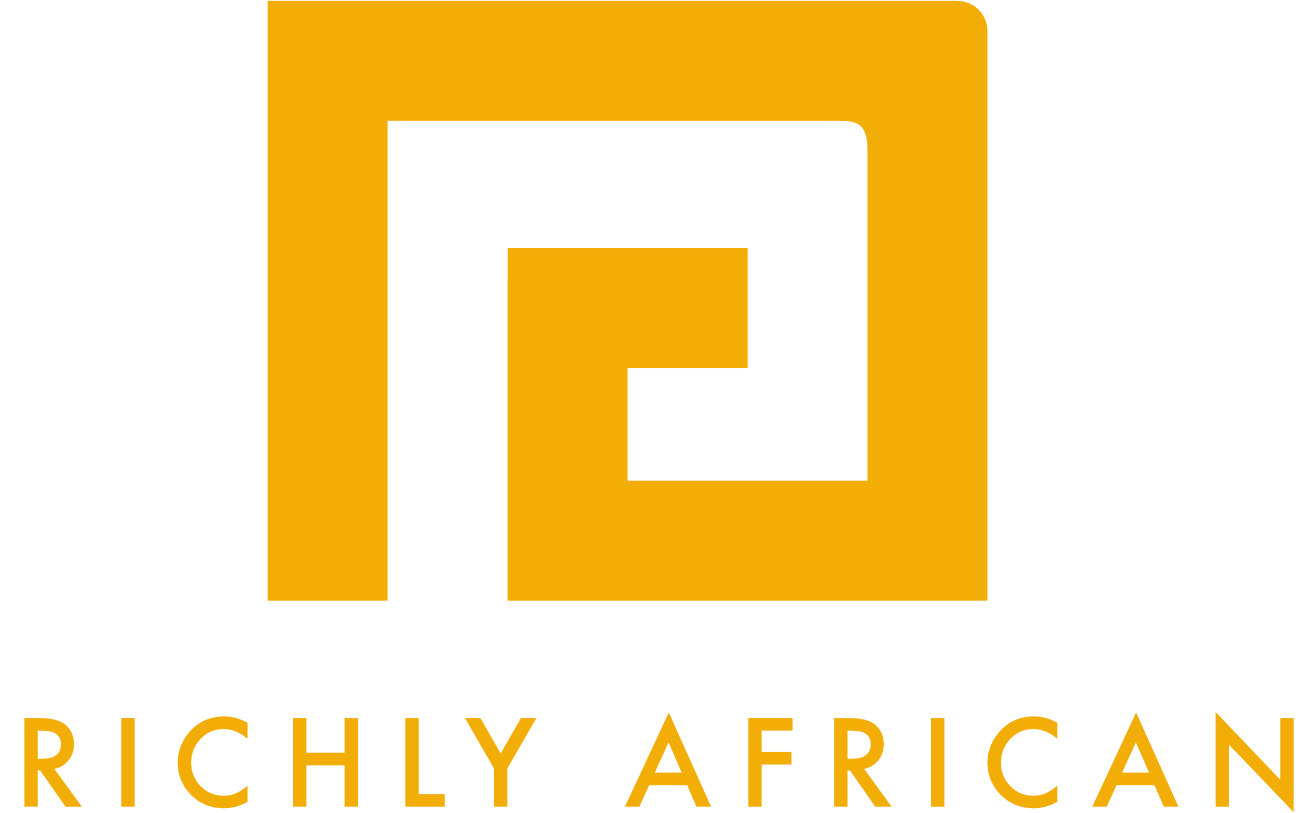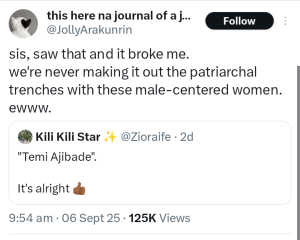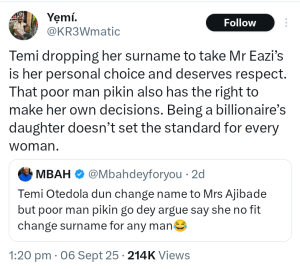When Temi Otedola and Mr Eazi (Oluwatosin Ajibade) shared pictures from their intimate wedding, social media was quick to celebrate the union of one of the power couples but beyond the glamour, her transition from Temi Otedola to Temi Ajibade has sparked conversations about her change of surname.
Across Africa, names are deeply connected with lineage and legacy. They are how communities trace ancestry, how families honor their heritage, and how a person’s place in a society is recognized.
To change a surname, especially as a woman in marriage, is to step into a new social and cultural identity, but today, as African women redefine their roles in career, family, and society, the surname change has become less of an obligation and more of a choice.
Some women proudly take their husband’s name, others don’t, or just merge both identities. For instance, Temi Otedola, wasn’t just changing a name, she was shifting an identity millions already recognized.
Not every surname carries the same kind of weight. For Temi, daughter of a billionaire, her name is a brand with global recognition. That is why her switch to Ajibade stirred emotions differently than when Priscilla Ojo or Chioma Adeleke made similar choices.
A young man expresses himself in his viral tweet:
Temi Otedola dun change name to Mrs Ajibade but poor man pikin go dey argue say she no fit change surname for any man😂
What’s the point? Wealth shields some women from the social or economic impact of surname change. For others, the decision could affect professional identity, inheritance, and legal documentation in ways Temi may never experience.
A fan backhandedly wrote:
“Temi Ajibade.” It’s alright 👍🏾
Another also quoted expressing disgust:
Sis, saw that and it broke me. we’re never making it out the patriarchal trenches with these male-centered women. ewww.
This shows how changing names can feel like a personal loss, and also to outsiders, even if it’s not their business anyways.
From Temi Otedola to Priscilla Ojo to Chioma Adeleke, and to other women out there, a change of surname is a decision that belongs to the woman herself. As one user said:
Temi dropping her surname to take Mr Eazi’s is her personal choice and deserves respect. That poor man pikin also has the right to make her own decisions. Being a billionaire’s daughter doesn’t set the standard for every woman.
In other words, the true progress is in ensuring they have the freedom to choose. Temi’s decision is personal, but it does not set a standard for all women. It also reminds us that while Temi’s choice deserves respect, every African woman equally deserves the freedom to make her own decision without judgment or comparison regardless of her background.
So, what does it really mean to change a surname in Africa? It is to embrace a new family, yes, but also to negotiate one’s identity in a society where names are loaded with tradition, expectations, and history.
Temi’s change of surname resonates not because she’s a billionaire’s daughter but it reflects a universal experience for African women. It reflects the tension between honoring one’s family history and embracing a new chapter.
Every woman who adopts a new surname must reconcile the emotional weight of leaving behind a name that connects her to her past.
As African societies continue to evolve, the significance of surnames and the decisions surrounding them will undoubtedly remain a topic of interest and debate.





